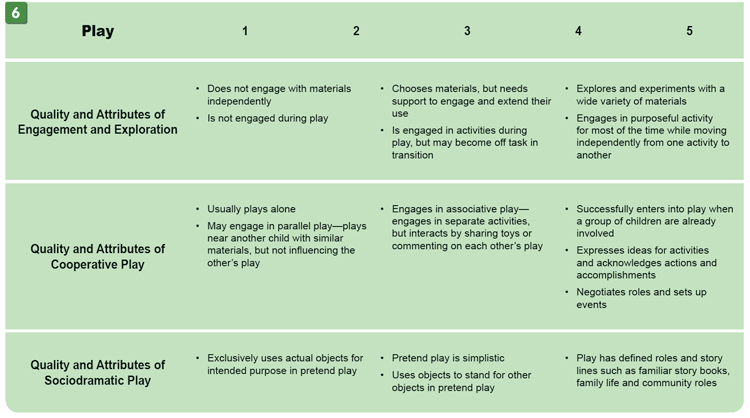Play is how children learn best. To help children achieve standards, they should be involved in play most of the day. Early on, children mostly enjoy functional play — simple repetitive movements. Children soon begin creating or constructing with blocks and other art materials in constructive play and learn to participate in roles as part of make-believe, or sociodramatic, play.
Play is demanding and constricting, with certain expectations for participating. Make-believe and games help children develop the ability to follow rules, supporting their self-regulation. Dramatic play helps them learn to understand roles and negotiate participation supporting their knowledge of community and social competency. Pretend play also contributes to the development of abstract thought and memory, extends vocabulary, storytelling and story memory, all very important early literacy skills.
The ELS assesses this item across 3 strands. The next three pages will provide more detailed information about these strands.

